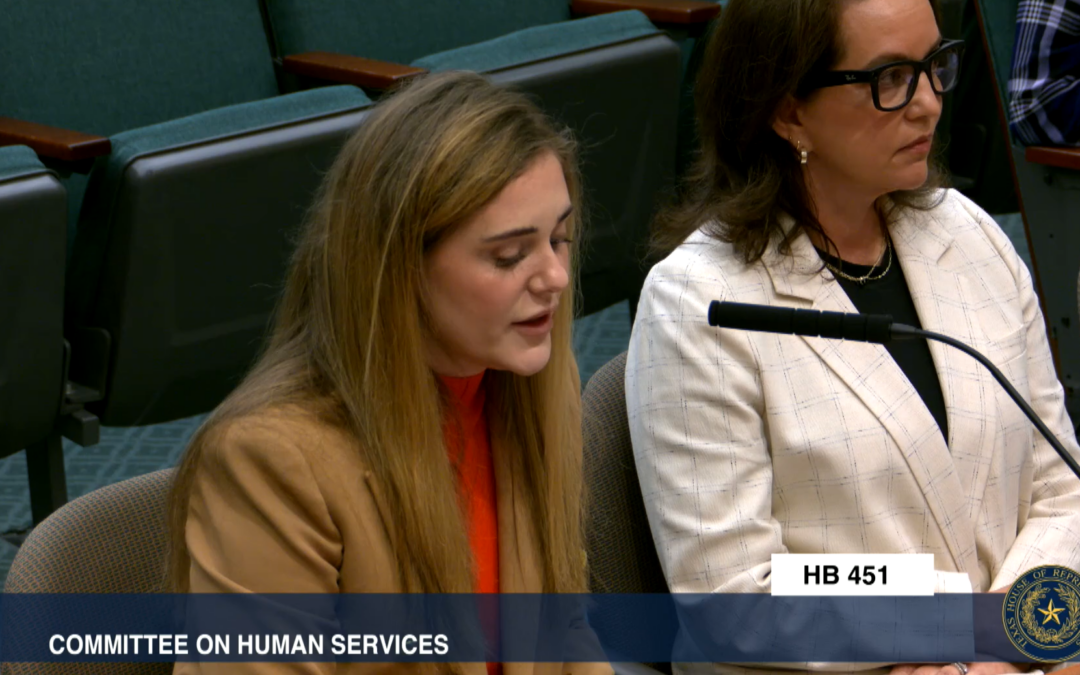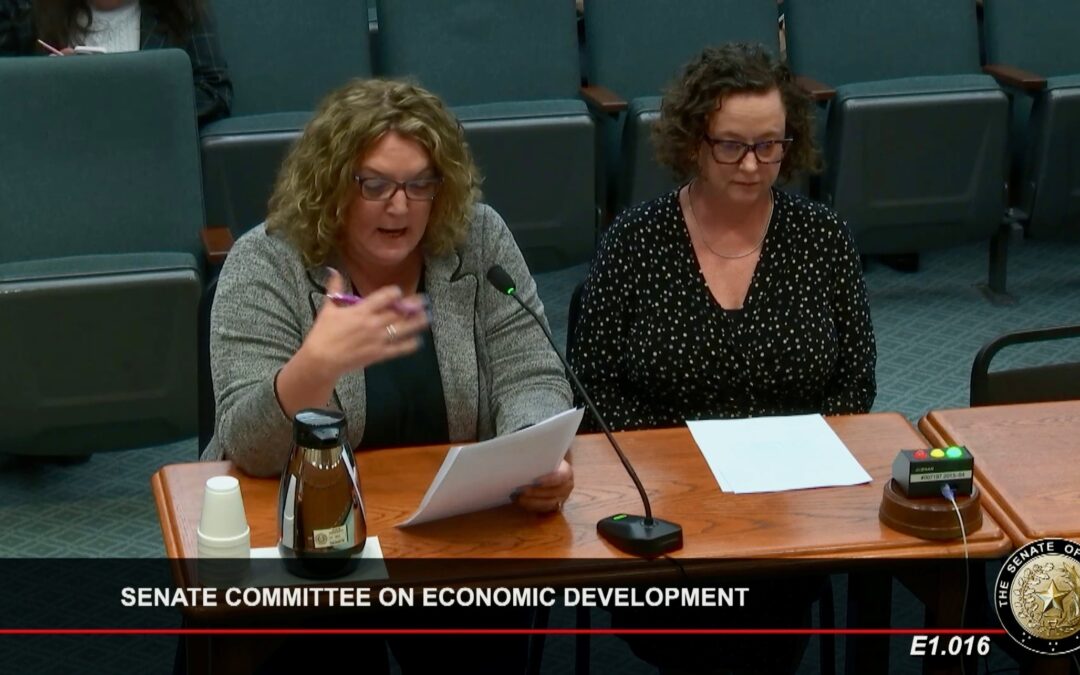Kim Kofron, Senior Director of Education with CHILDREN AT RISK, testifies in support of SB 599/ HB 4127 during the March 11, 2025 Texas Senate Health and Human Services Committee Hearing.
ADVOCATING IN SUPPORT OF SB 599/HB 4127
As the name implies, family home child care is simply an individual Texan providing care in his or her – usually her – home. These small businesses provide working parents with smaller, more personalized care right in their neighborhoods. Some home providers specialize in providing child care during night-time work hours or offer other flexible arrangements for wage workers
Home-based child care is everywhere in Texas and serves all kinds of working Texans. Many parents want to send their children to family child care homes that are closer to home or more culturally responsive. Parents in rural communities or working non-traditional hours often have no other options as center-based child care is not economically feasible in areas with low population and at non-peak times.
Texas has lost 18% of our family child care homes or 879 family providers since before the COVID-19 pandemic. The loss of child care only continues today as more programs close each month. Businesses are feeling the pinch. Employers in “child care deserts” with existing child care shortages and in rural communities rely on home-based child care providers, as do businesses operating during non-traditional hours. A drop in family home child care hurts employers, reduces profits, and creates a drag on the Texas economy.
THE PROBLEM
- Decrease in Child Care Providers: Texas has seen a significant loss of family child care homes since 2019, with nearly 900 providers closing. This loss is more pronounced in rural areas and “child care deserts”—areas with limited child care options.
- Economic Impact: The shortage of child care options affects parents, businesses, and the broader economy, particularly as parents struggle to find care for their children, impacting their ability to work.
- Local Regulations: Excessive local zoning and ordinances prevent home child care providers from opening or operating efficiently, exacerbating the problem.
THE IMPACT
- Workforce Shortages: Employers, especially in rural communities and those requiring non-traditional hours, face workforce shortages as working parents have fewer child care options.
- Economic Slowdown: As child care options dwindle, it impacts economic activities, particularly for small and mid-sized businesses that rely heavily on local employees.
THE SOLUTION
- Support SB 599/HB 4157
- Local Deregulation: The Texas Health and Human Services Commissions regulates and monitors the health and safety of child care centers in Texas. State child care regulations create a consistent and research-based standard statewide for the well-being of children. Unfortunately, some local ordinances and zoning can create huge hurdles for Texans wanting to create more family home child care for working parents.
- Support for Providers: By reducing regulatory hurdles, the bill helps more providers to operate, thereby increasing child care options and supporting working families.
- Economic Benefits: With more child care options, parents can work more consistently, aiding local businesses and boosting the economy.
READ MORE FROM C@R

Advocating in Support of SB 570 & SB 991
Mandi Kimball, Chief Government Affairs Officer with CHILDREN AT RISK, testifies in support of SB 570 & SB 991 during the March 25, 2025 hearing of the Texas Senate Committee on Education K-16. My name is Mandi Kimball, Vice President of Children at Risk, and I am...
Advocating in Support of H.B. 213
Mandi Kimball, Vice President & Chief Government Affairs Officer with CHILDREN AT RISK, testifies in support of H.B. 213 during the March 18, 2025 Texas House Committee on Public Education. HB 213 is a re-filed bill and passed this committee and the full House...

Advocating in Support of HB 3173/SB 1143
Caroline Roberts, Senior Director of Public Policy with CHILDREN AT RISK, testifies in support of HB 3173/ SB 1143 during the April 1, 2025 Texas House Committee on Trade, Workforce, and Economic Development Subcommittee on Workforce Hearing. House Bill 3173 would...

Advocating in Support of SB 941/HB541
Caroline Roberts, JD, General Counsel & Senior Director of Public Policy with CHILDREN AT RISK, testifies in support of SB 941/ HB 451 during the March 25, 2025 Texas House Licensing & Administrative Procedures Committee Hearing. Texas can do more to protect...

Sign-On Letter in Support of SB 972/HB 2294
Kim Kofron, Senior Director of Education, testifies in support of SB 972/HB 2294 during the March 17, 2025 Senate Economic Development Committee Hearing. We, the undersigned early childhood professionals, educators, employers, parents, and advocates, urge you to...
2025 Anti-Human Trafficking Advocacy Day Recap
Anti-Human Trafficking Advocacy Day AUSTIN, TX (January 30, 2025) – Human trafficking continues to devastate vulnerable populations in Texas, with children in foster care and the juvenile justice system disproportionately at risk. In 2022, only 332 of the 38,294...
Stay Informed
Sign up for our Advocacy Action Alerts for updates during the legislative session, our latest research, policy analysis, and ways you can take action!
